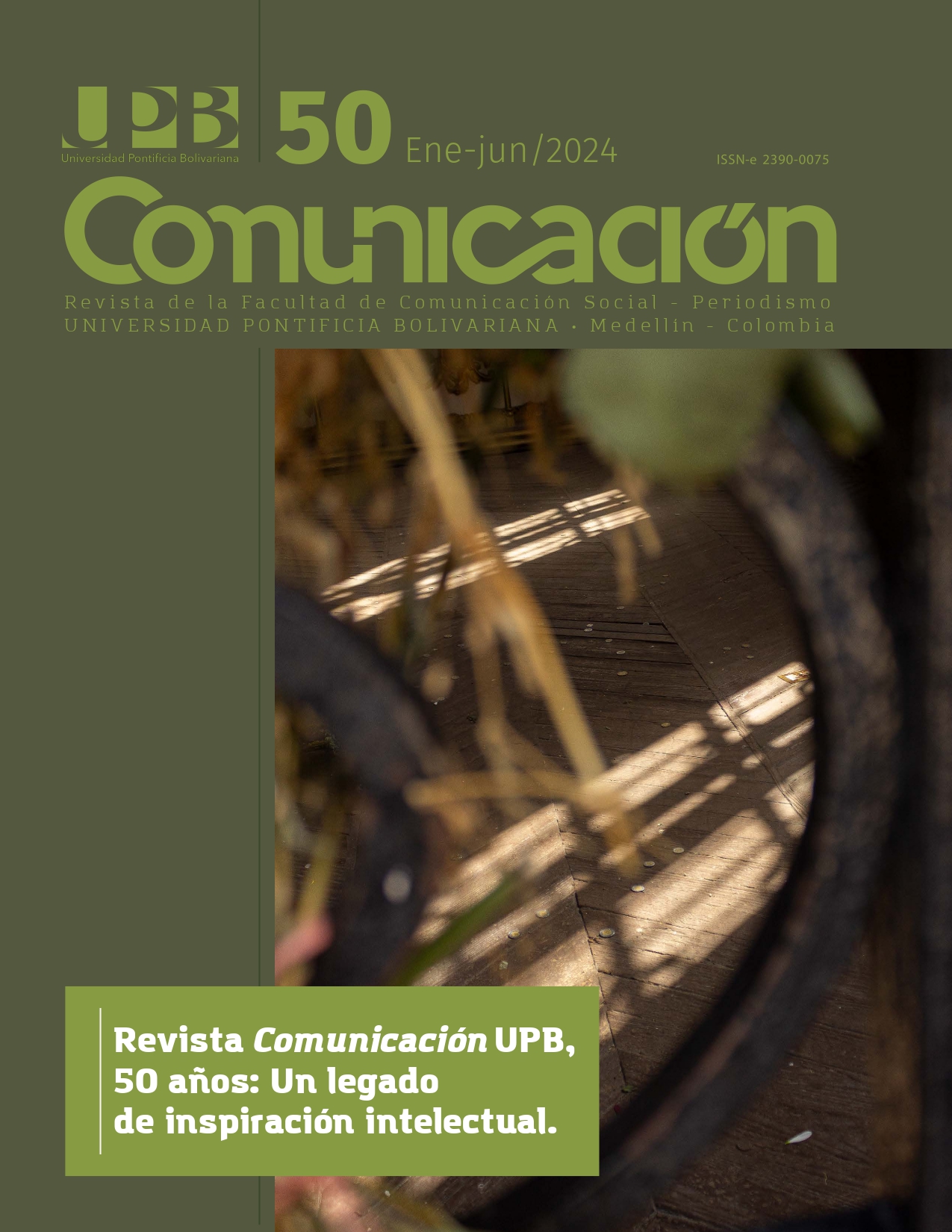The communicative processes in the life of a space for the dead. The panteón del Saucito in San Luis Potosí, México
Main Article Content
Abstract
In this article we analyze the Saucito cemetery in San Luis Potosí, Mexico, with a new perspective. The works dedicated to this place have a historical focus, studying the history of the site, as well as the relevance of the illustrious people who lie here. Without leaving aside these contributions, we propose to discuss the processes of contemporary appropriation by the inhabitants of the city of San Luis Potosí. To achieve this purpose, we will assume that both the urban layout of the cemetery, as well as its tombs and monuments, are communicated through the visual, so; Firstly, we present the theory of the image presented by Hans Belting, its agency in society by Alfred Gell and the consequences of its mobility seen by Freedberg; As a second point, we analyze the public space of the venue through the interpretation of Henri Lefebvre; and in the third instance, we point to space and image as part of Martín Serrano’s general theory of communication. Throughout the development, the photographic image has a fundamental role, as it is part of the argument to explain the processes that allow the living to feel linked not only with their ancestors (real and imaginary) but also with the space that houses them, transmuting the individual death in generational life.
References
Belting, H. (2007). Antropología de la imagen. Barcelona: KATZ editores.
Fugellie Gezan, I. (2013). La catrina. Una imagen para la eternidad. Diseño en síntesis, 47-48, pp. 104-117. https://disenoensintesisojs.xoc.uam.mx/index.php/disenoensintesis/article/view/252
Freedberg, D. (1992). El poder de las imágenes. Madrid: Cátedra.
García Riera, E. (1985). Historia del cine mexicano. Ciudad de México, México: Secretaría de Educación Pública.
García Varas, A. (2011). Filosofía de la imagen. Salamanca: Ediciones Universidad de Salamanca. Gell, A. (2016). Arte y agencia. Buenos Aires: SB Editorial.
Gubern, R. (1987). La mirada opulenta. Barcelona: Gustavo Gili. Gutiérrez Mendoza, E. S. (2015). El cementerio P.re Lachaise en Paris: un patrimonio cultural mundial. Anales de la Academia de Geografía e Historia de Guatemala, 88, pp. 267-300. https://www.academia.edu/29543137/El_cementerio_P%C3%A8re_Lachaise_en_Paris_ un_patrimonio_cultural_mundial
Herrera Moreno, E. (2005) Restauración integral del panteón de Dolores. Ciudad de México: Instituto Nacional de antropología e Historia.
Jiménez Blasco, B. C. (2009). Los antiguos cementerios del ensanche norte de Madrid y su transformación urbana. Anales de Geografía, 1(29), pp. 35-55. https://dialnet.unirioja.es/servlet/articulo?codigo=3071312
Lefebvre, H. (2013). La producción del espacio. Madrid: Capitán Swing Libros.
Mandoki, K. (2006). Prácticas estéticas e identidades sociales. Ciudad de México: Siglo XXI.
Martín Serrano, M. (2007). Teoría de la comunicación. Madrid: McGraw Hill. Mauss, M. (2009). Ensayo sobre el don. Buenos Aires: Katz Editores.
Morales Lomel., P. (2017). La metrópolis en la necrópolis [Tesis doctoral, Universidad Nacional Autónoma de México, Ciudad de México]. http://132.248.9.195/ptd2017/mayo/0758624/Index.html
Morin, E. (2011). El cine o el hombre imaginario. Barcelona: Limpergraf, S. L.
Motilla Chávez, J. A. (2012). La visión liberal de un empresario potosino: José Encarnación Ipiña, 1867-1888 [Tesis de maestría, El Colegio de San Luis, San Luis Potos., México]. https://biblio.colsan.edu.mx/tesis/MotillaChavezJoseAntonio.pdf
Nora, P. (2008). Pierre Nora en Les lieux de mémoire. Montevideo: Trilce.
Plazola Cisneros, A. (1996). Enciclopedia de arquitectura. Ciudad de México: Plazola.
Sontang, S. (2006). Sobre la fotografía. Ciudad de México: Santillana. Suárez Guava, L. A. (2009). Lluvia de flores, cosecha de huesos. guacas, brujería e intercambio con los muertos en la tragedia de Armero. Maguaré, 23, pp. 371-416. https://repositorio.unal.edu.co/bitstream/handle/unal/29059/15058-45508-1-PB. pdf?sequence=1&isAllowed=y
Vázquez Salguero, D. y Corral Bustos, A. (2017). Monumentos funerarios del cementerio del Saucito. San Luis Potos.: El Colegio de San Luis. https://ventalibros.colsan.edu.mx/detalles.php?str=35
Triquell, X., Dell Aringa, C., Schoenemann, E., Arias, C., Gómez, L., López, V. y López Seco, C. (2010). Contar con imágenes. Córdoba: Brujas.






